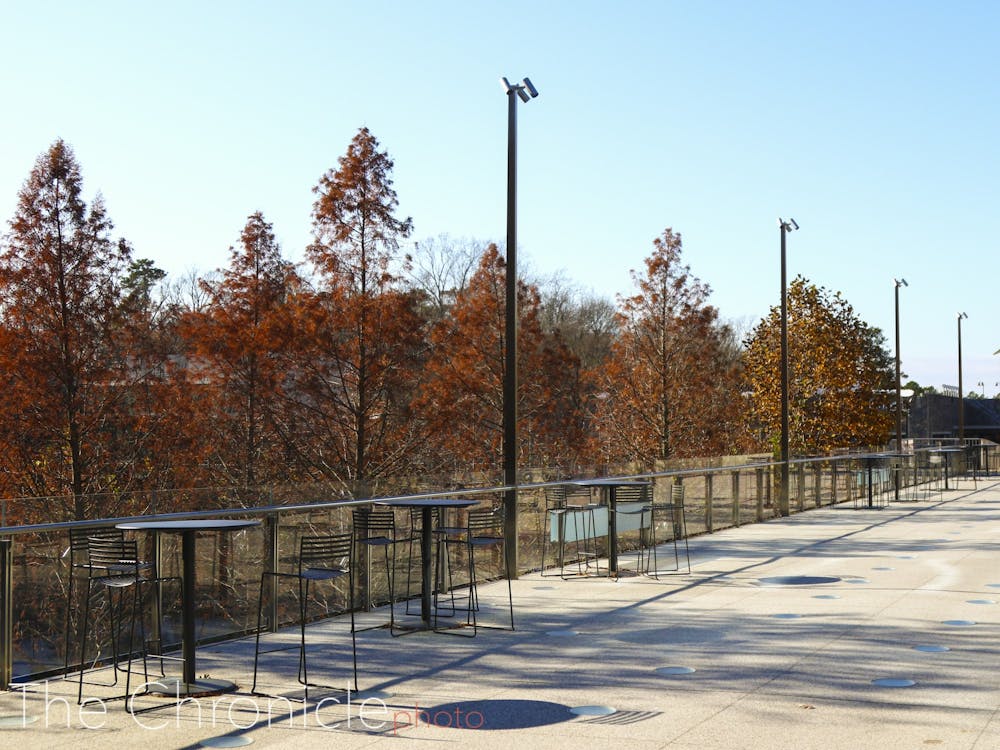With the planned hiring of two new tenure-track professors in Asian American and diaspora studies, what’s next for the program?
The AADS program, which was founded in spring 2018, still does not offer a major, minor or certificate—but that may be changing.
Esther Kim Lee, a professor of theater who specializes in Asian American theater, Korean diaspora theater, interculturalism and globalization and theater, explained that the hiring notices come as the result of funding from the Duke Endowment—a private foundation, headquartered in Charlotte, which is separate from the University’s endowment—for up to six tenure-track professors in African, Latinx studies and Asian American studies.
Last year, the history and English departments each hired an Africanist tenure-track professor, and this year Latinx and Asian American studies will each hire two faculty members.
“This is an effort within Asian-American studies towards creating what will most likely be a certificate program,” Lee said.
Along with that potential certificate, AADS also helped introduce the Immigration and Citizenship Focus program, led by Lee as faculty director, which began this fall.
The cluster seeks to “explore how debates around race, immigration, colonialism, labor, genetics, media and cultural representations and artistic performance shape ideas about who is included in and excluded from different nations,” according to the Focus website.
In order to expand the program and offer a major or minor in the future, AADS Director Nayoung Aimee Kwon said “we need continued buy-ins and active leadership from across the campus… to imagine what an ethnic studies curriculum at Duke would look like for the 21st century.”
She also called for a “fundamental reimagining of how some of the core disciplines are conceived and taught.” In terms of curricular needs that must be met, Lee said that the program needs more full-time tenured faculty who “research and teach Asian American studies as their core focus.”
She said she is currently the only professor in the department who does so, and will soon be joined by the two additional tenure-track professors.
In addition, Lee said the program currently has only “an ad-hoc space in the Bryan Center” in which they hold classes, “which is not the ideal space for an academic program.” She noted that additional space in an academic building would help expand the program as well.
Lee emphasized that the AADS program currently has minimal resources because it’s still in its infancy.
“Hopefully in the next five years or so, we can really start to look like an academic program,” she said.
The road to creating and sustaining the program hasn’t been easy, and Lee and Kwon both acknowledged that much of the credit goes to students.
“For years, we have shifted the responsibility to the students, many of them going as far as designing their own majors through Program II,” Kwon said, with some students also teaching or taking student-led house courses. Lee said that students have made sure "momentum didn’t die out” and held administration to the promises they made.
The program wouldn’t exist without “20 years of sustained student protest at Duke,” Lee said.
Kwon noted that the AADS program is currently in the process of creating an archive documenting the decades of student activism that went into creating the program.
Despite the lack of resources, Lee said that the program has been hugely successful so far. She hopes that sustained student interest and continued administrative support will allow the program to flourish.
Kwon emphasized that the fight to include Asian American Studies in college curricula is part of the long-overdue reckoning Americans are currently having with racial injustice.
“This current moment affords us a tremendous opportunity to…question the fundamental hierarchy and caste system of racial relations in American society rather than fighting amongst ourselves,” she said.
Get The Chronicle straight to your inbox
Sign up for our weekly newsletter. Cancel at any time.
Correction: This article has been updated to reflect that two faculty members hired last year were Africanist professors in the history and English departments, not professors in the African and African American studies department. The Chronicle regrets the error.
Anisha Reddy is a Trinity junior and a senior editor of The Chronicle's 118th volume.

